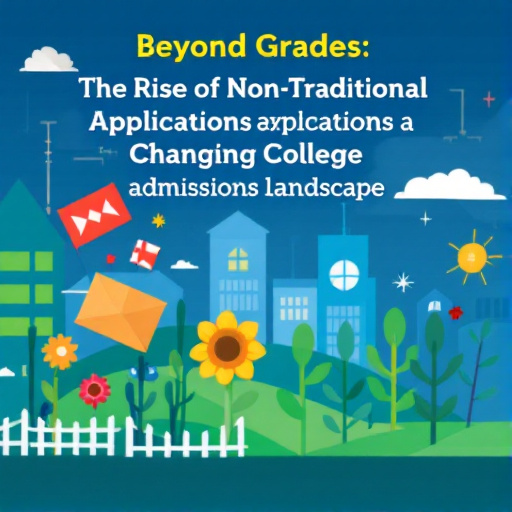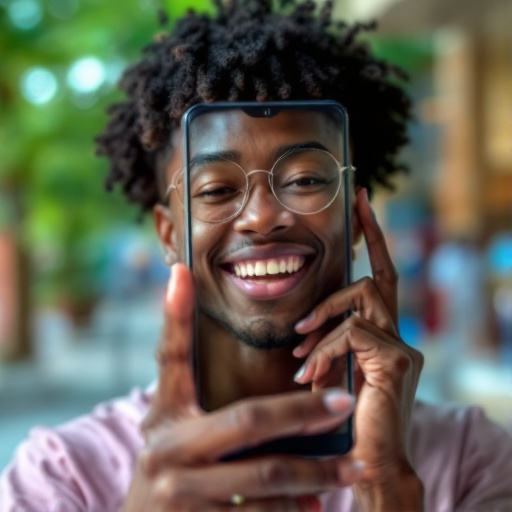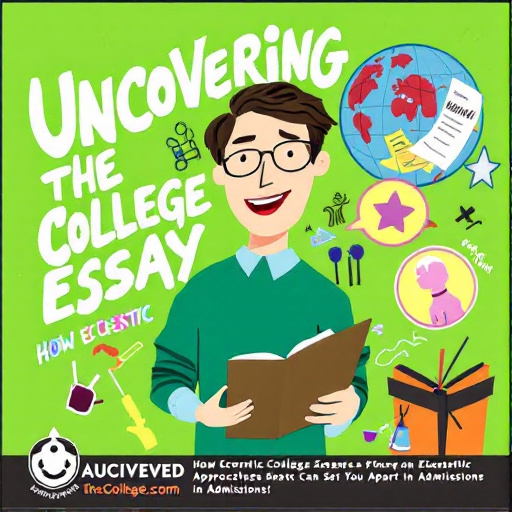Featured Articles
- 5 Unexpected Financial Aid Secrets Every College Applicant Must Know Before You Submit
- "Beyond Grades: How Mental Health Spaces Are Shaping College Applications in 2023"
- "Beyond Grades: The Rise of Non-Traditional Applications in a Changing College Admissions Landscape"
- Beyond the Basics: How TikTok Influencers are Shaping College Application Trends in 2023
- The Hidden Cost of College Applications: How Mental Health Influences Admission Success
The Rise of Virtual Reality Campus Tours: Transforming College Applications in the Digital Age
The Rise of Virtual Reality Campus Tours: Transforming College Applications in the Digital Age
The evolution of technology is reshaping the college admission experience, with virtual reality campus tours leading the way. This innovative approach not only makes exploring potential schools convenient but also enhances the emotional connection students feel towards their future campuses.
The Transformation of College Campus Tours
Once upon a time, the journey of selecting a college involved long road trips, crammed schedules, and itineraries that felt more like a military operation than an adventurous exploration. Students would hop from one campus to another, fueled by caffeine, trying to soak in the essence of each institution. Fast forward to 2023, and technology has gifted us with virtual reality (VR), forever altering how students experience prospective colleges.
The Technology Behind Virtual Reality Tours
Virtual reality is an immersive technology that simulates a three-dimensional environment. By wearing VR headsets, students can walk through college campuses from the comfort of their own homes. In fact, a 2022 survey revealed that 45% of students preferred VR tours over traditional visits, citing convenience and accessibility as primary drivers (Jones, 2022). But how exactly does this technology work?
At its core, VR integrates images, sound, and sometimes haptic feedback to create an engaging experience that duplicates real-world interactions. Most modern campuses are mapping their facilities using 360-degree cameras and specialized software that can recreate not just the buildings but also social hotspots like dining halls and libraries. Imagine sitting in a campus quad with fellow students, all from your couch. Pretty neat, right?
Benefits of Virtual Reality Campus Tours
But let’s dive deeper into why VR campus tours have gained such traction. The benefits extend far beyond mere convenience.
Increased Accessibility
With geographic diversity, not every student can easily visit multiple campuses. Perhaps they live in rural areas or simply can't afford the travel expenses associated with on-site visits. A survey by the National Association for College Admission Counseling found that 57% of students felt overwhelmed by the traveling demands of college visits (NACAC, 2021). Virtual reality effectively levels the playing field, allowing all interested students an equal opportunity to explore their options.
Deeper Understanding of Campus Culture
Beyond buildings and landscapes, college culture is a vital component of a student's overall experience. Through virtual tours, students can virtually "attend" campus events, interact with current students through live Q&A sessions, and witness how their potential peers engage in campus life. For example, the University of Southern California developed a VR tour that includes student-led discussions while navigating the campus (USC, 2023). This kind of engagement helps applicants get a real flavor of campus life that static images simply can't deliver.
The Impact on College Choices
The immersive experience of a virtual tour can significantly influence a student's choice of college. Many institutions are reporting shifts in enrollment numbers partially attributed to their VR offerings. For instance, West Virginia University launched their VR tours in 2021 and noticed a 20% increase in applications for the subsequent academic year (WVU, 2022). This case underscores how technology can not only transform exploration but also the decisions students ultimately make.
Emotional Connections and Storytelling
Speaking of decisions, let’s address the elephant in the room: college is a big deal, and emotions often play a pivotal role in the application process. With VR tours, students can become emotionally connected to the virtual campus. Imagine walking through a picturesque campus while hearing stories from current students and veterans about their transformative experiences. As they explore, an emotional bond is formed, creating a sense of belonging even before they step foot on campus.
Personal Stories that Resonate
Take Maria, for example, a high school senior who had always dreamed of studying at Yale. Living in a small town in Kansas, she found it nearly impossible to visit. After engaging with Yale's VR tour, she felt an unexpected connection to the campus and its community. “I could see myself walking those paths, going to classes in historic buildings,” she shared. Her emotional engagement guided her application decision, turning a dream into reality.
Challenges and Limitations
While the rise of VR tours has been impressive, it’s not without challenges. Accessibility in technology itself remains a concern. Not every student has access to high-end VR equipment; although web-based VR experiences provide alternatives, they can lack immersive quality.
Balance Between Reality and Virtual
Also, there’s an argument to be made that traditional campus visits offer elements that virtual tours simply cannot replicate— the smell of the cafeteria, the feel of that windy day on the college green, or the spontaneous conversation with current students. It’s crucial that students still attempt to visit campuses whenever possible. So, while VR can be a fantastic tool, it should not replace the real thing but rather serve as a supplement.
The Future of Virtual Reality in Admissions
The advancement of technology has always shifted paradigms, and VR is undeniably defining a new era in college admissions. As more institutions recognize its value, we can expect greater integration into their marketing strategies. Currently, institutions are investing simultaneously in VR and AR experiences to create even richer and more engaging tours.
Fostering Inclusivity Through Technology
Future developments in VR might help colleges connect with a broader, more diverse population. Schools are likely to harness data analytics to personalize experiences, taking factors such as students' interests, academic pursuits, and cultural backgrounds into account. Imagine a future where each student’s virtual tour is uniquely tailored to their interests, presenting campuses in a way that feels curiously personal.
Conclusion: The Way Forward
As alarming statistics about the youth and mental health rise alongside fluctuating college applications, there’s an urgent need to make this journey less daunting. The rise of virtual reality tours offers not just a glimpse into future campuses but a more human, relatable experience that can ease some of the anxieties surrounding college applications. As we step further into this VR-enabled world, it’s clear that the quest for education is made richer and more compelling. Whether or not you're a traditionalist or an early adopter, one thing is certain—virtual tours are about to define the next generation of aspiring college students, balancing excitement with informed choices.
So, embrace the future, explore your options, and who knows, maybe the next chapter of your life awaits just a virtual step away!




